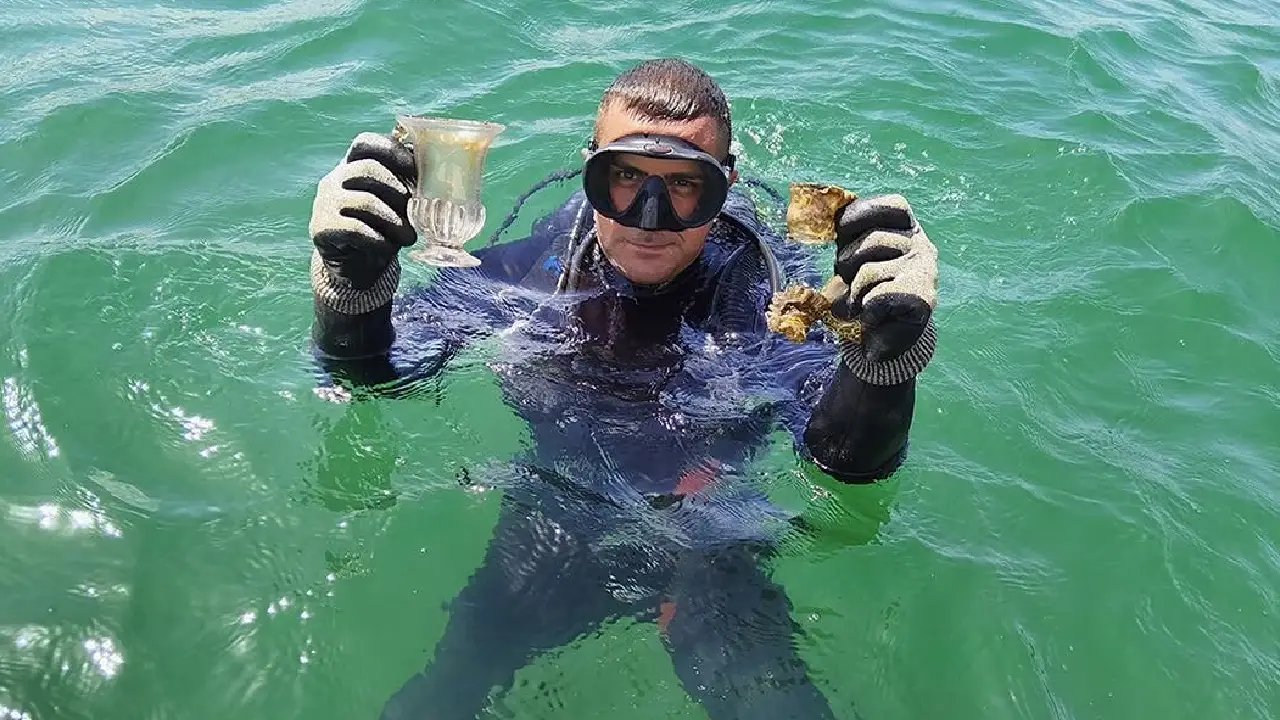The waters off the coast of Bulgaria have yielded a treasure trove of historical artifacts, offering a glimpse into the region’s rich maritime past. In recent years, underwater archaeological surveys have uncovered a significant collection of glass vessels, dating back centuries and providing valuable insights into trade, production, and maritime activities during the Late Ottoman period.
In June 2024, an extensive survey in Chengene Skele Bay near Burgas uncovered 112 additional glass objects, bringing the total number of discovered vessels to 310. These artifacts are believed to have originated from a Venetian workshop on the island of Murano and were likely part of a cargo shipment that encountered a shipwreck. The discovery of iron anchor chains and fragmented ceramic vessels in the vicinity supports this theory.
While the exact location of the shipwreck remains a mystery, the ongoing research aims to shed light on the poorly understood topic of glass consumption, trade, and production in the Balkans during the Late Ottoman period. The large number of glass vessels discovered suggests that they were part of a substantial cargo, highlighting the importance of glass in the region’s economy.

Beyond the glass vessels, the archaeological team explored other areas within the bay, uncovering artifacts from various historical periods. One area yielded Hellenistic pottery fragments, a Roman lead rod, and a stone fishing weight, while another revealed late antique and medieval amphora fragments. These discoveries offer a glimpse into the diverse maritime activities that took place in the region over centuries.
The southeastern end of the bay, near the historic Chengene Pier, was also a focus of the survey. This area, mentioned in European diplomatic records from the 18th and 19th centuries, revealed a concentration of late antique and medieval amphora fragments, as well as an iron horn from an anchor. These findings align with historical accounts of significant maritime activities in the region.
The discoveries from these areas provide valuable information about the trade dynamics and production techniques of glassware in the Balkans during the Late Ottoman period. The newly discovered glass items will be exhibited at the Archaeological Museum in Burgas, allowing visitors to appreciate the historical significance of these ancient artifacts.
The underwater archaeological surveys in Bulgaria have not only uncovered valuable artifacts but have also contributed to our understanding of the region’s maritime history. These discoveries offer a glimpse into the past and provide a testament to the enduring legacy of the region’s maritime activities.

Leave a Reply